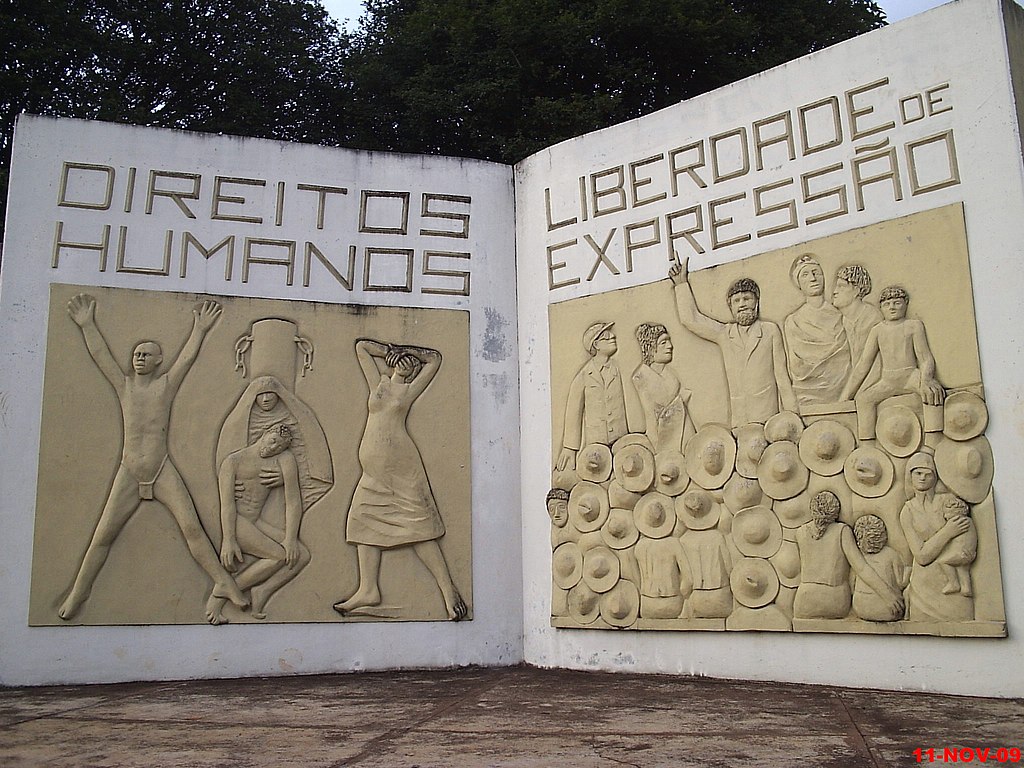Freedom of Speech – Today 29th of June will be a busy day in the Assembly of the Republic. The parliament and the government will discuss the Czech presidency of the EU Council and other central European Union matters. One of those affairs is freedom of expression, and for that, there are going to be discussed three important bills that can (if passed) protect, check, and/or ensure freedom of speech in Portugal. More specifically, these bills aim to amend the Portuguese Charter of Fundamental Rights in the Digital Age (Carta de Direitos Fundamentais na Era Digital), a bill ratified into law on May 17th, 2021.
The chart was inspired by the 2018 EU’s Action Plan against Disinformation, which aims to combat propaganda that can destabilize European institutions as well as member states’ institutions. Accordingly, the charter states:
“All citizens […] have the right to freedom of opportunity of access, utilization, creation, and sharing in the Digital world.”
As the Liberal Initiative (Iniciativa Liberal, party member of the Renew Europe political group) bill says, the “law guarantees free access to the internet, the right to be forgotten”, etc. However, the liberal parliamentary group considers that article 6 of the chart promotes “censorial mechanisms”, relating to the “freedom to protection against disinformation”.
This is because, as the liberals say, the term “disinformation” is not well defined and that the current definition is inadequate. The definition of “information that is fake, […] or that may be considered fake by any official institution” can be very dangerous, the liberals claim, because it can mean censorship by the government. “Defining what is ‘true’ or ‘false’ in politics, […], and the power to censor political discourse only by agents authorized by the government is unacceptable”.
The deputies who wrote the bill, therefore, admit that political discourse will always be filled with logical fallacies, half-truths, factoids, etc. And that’s because that shouldn’t be regulated by any entity. For that reason, the liberal bill proposes the revocation of article 6 (of the Portuguese Charter of Fundamental Rights in the Digital Age).
The bill that the populist party, CHEGA, will propose is similar in its objective (the revocation of article 6), but on a different foundation. First, the proposal cites the Ombudswoman Maria Lúcia Amaral “request for inspection in relation to article 6 of the law”.
The deputies of CHEGA mention the 2nd and 37th articles of the Portuguese Constitution to express a question of constitutionality regarding article 6 of the Charter. Both of the articles, regarding freedom of expression, clearly state that there are no limitations to the rights to freedom of speech, and so, no exceptions regarding censorship of disinformation. Hence, CHEGA! proposes the revocation of article 6, and a slight alteration to article 5 of the Charter.
The Socialist Party (PS), however, clearly states that it has a different view on the matter. As it is written in the bill:
“Between us, the quarrel recently centered around one of the many articles in the Portuguese Charter of Human Rights in the Digital Age has diverted attention from the most difficult points in managing the media agenda of the digital age. From the authors’ rights of journalistic pieces, competition rules, and the regulatory system manifestly conceived for the pre-digital world. Contributing very little to the essential question that the fight against disinformation itself calls for.”
PS, thus, opts for just simplifying the article (article 6, of course), by revoking the numbers 2 to 6 of article 6.
—
Try our beta videos:









